Welcome to Comics Are My Religion, a look at theology through the lens of comic books. There are some basic ground rules about engaging in respectful dialog about religion in this column. Be warned, if you haven’t read the comics discussed below, you might want to go read it and come back, as this column may contain spoilers!
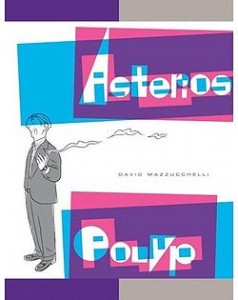 Why do we exist? What is our purpose in life? Don’t think for a second I’m going to answer these questions in my brief exposition here. But these are important questions, and ones that are asked by folks from all walks of life and from all religious traditions.
Why do we exist? What is our purpose in life? Don’t think for a second I’m going to answer these questions in my brief exposition here. But these are important questions, and ones that are asked by folks from all walks of life and from all religious traditions.
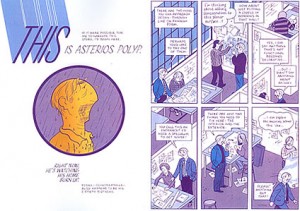 Some might say our ultimate goal is to achieve ultimate enlightenment and peace with the world and our fellow human beings. Others may say it’s to get to heaven. Still others might say it’s to see the aliens come down and probe our nether regions (that’s what our editor-in-chief thinks).
Some might say our ultimate goal is to achieve ultimate enlightenment and peace with the world and our fellow human beings. Others may say it’s to get to heaven. Still others might say it’s to see the aliens come down and probe our nether regions (that’s what our editor-in-chief thinks).
We all have those moments of exploration in our lives where we pause and wonder if our lives have really been worth all the work we’ve put into them.
Last year, I came across what might be my most favorite graphic novel of all time, Asterios Polyp by David Mazzuchelli. To me, Mazzuchelli’s masterpiece is all about these questions of self and purpose.
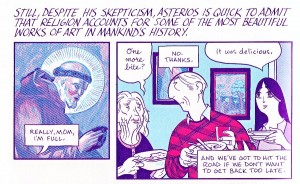 The book’s protagonist is a middle-aged architecture professor named Asterios Polyp. Asterios is highly successful, and has the ego to go along with his success. But everything begins to focus for Asterios when his apartment building burns down. He loses everything, but begins a journey of self-exploration that allows him to find contentment, and ultimately, his purpose.
The book’s protagonist is a middle-aged architecture professor named Asterios Polyp. Asterios is highly successful, and has the ego to go along with his success. But everything begins to focus for Asterios when his apartment building burns down. He loses everything, but begins a journey of self-exploration that allows him to find contentment, and ultimately, his purpose.
After losing his home, Asterios takes a bus and lands in the middle of nowhere, where he is taken in by a mechanic and his family. Asterios works for the mechanic, and his life becomes intertwined with the family, including the mechanic’s spiritual wife. Throughout the book, Mazzuchelli weaves Asterios’s history in ways that can only be done in a graphic novel, including his failed relationships and eventual love story with his wife Hana, and the ultimate dissolution of their marriage. Asterios reflects on the joyous and difficult parts of their relationship.
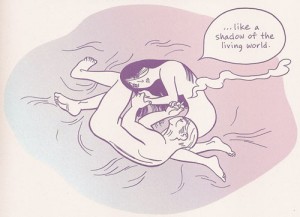 In the end, Mazzuchelli doesn’t answer the question of Asterios’s purpose, but certainly leaves a lot to the reader’s imagination. And really, that’s the way life is, too. Only our imaginations limit what we believe our main purpose and goal in life to be. Asterios gets the rare opportunity to take stock of his life and see it from the outside in order to become a better person. Once his own sense of creativity and imagination are activated again, he can begin life anew.
In the end, Mazzuchelli doesn’t answer the question of Asterios’s purpose, but certainly leaves a lot to the reader’s imagination. And really, that’s the way life is, too. Only our imaginations limit what we believe our main purpose and goal in life to be. Asterios gets the rare opportunity to take stock of his life and see it from the outside in order to become a better person. Once his own sense of creativity and imagination are activated again, he can begin life anew.
Perhaps that’s really the reason why things like comic books are so important. They allow us to unlock our own imaginations in order to see our true purpose. Perhaps our Creator intended this to be the way to find our own purpose. Whatever that purpose may be, to be a mechanic or a professor of architecture, a cynic or a believer, a person who loves or a person who looks out for themselves only, it’s our imaginations that inspire us to be more and to become happier. For many, religion unlocks that imagination as well, giving us a glimpse into the divine to see what life could be about.
In the end, I’d like to think that Asterios ultimately discovers that his purpose is love…to be a better human being in order to love. No matter where we are on the spectrum of religion, I would hope that’s where we all land. When we look around and see wars being fought on the basis of religion, I can’t help but think that we are destined for so much more. Asterios finds this through the imagination and illumination of love. Will we do the same?
Jeff Jackson
jeff@comicattack.net

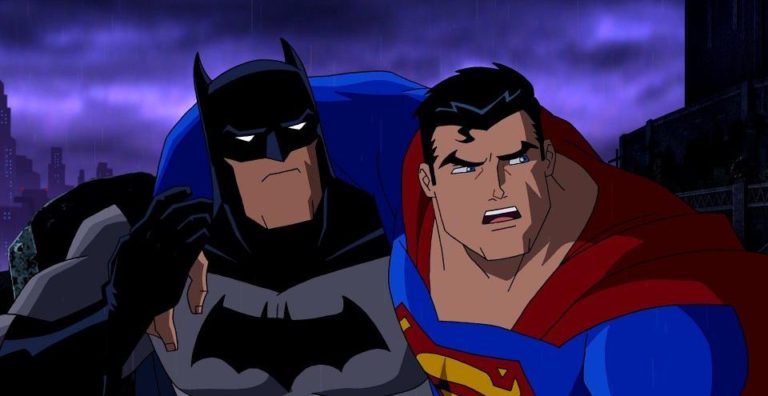
I’m with the enlightenment and peace track. If our only purpose is to get into Heaven, then why bother with the Earth part? I think creating happiness for yourself and others is part of our purpose. We’re here so we can experience love, happiness, hope…but also sorrow, hopelessness, etc. Without one there can’t be the other. And the bad things make the good things all the better. I think we’ve been blessed with life to experience those things.
Really good insight, Kristin, and in fact, it’s the “bad things” that wake Asterios up to becoming a better human being.
The truth is out there…
*Cue the X-Files theme.
Pingback: Tweets that mention Comics Are My Religion: Asterios Polyp -- Topsy.com
Pingback: Comics Are My Religion: Time & Dapper Men